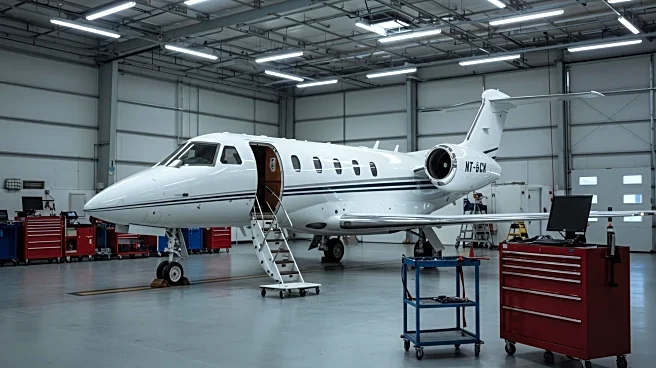What's Happening?
Aerocardal has joined Embraer's network of authorized service centers, marking Embraer's return to the Chilean market. This partnership allows Aerocardal to provide line maintenance and AOG support for Embraer's executive fleet at its MRO facility located at Santiago's Arturo Merino Benitez International Airport. Aerocardal, which also represents Pilatus and Gulfstream, has strategically positioned itself to expand its service offerings without engaging in aircraft sales. The collaboration is expected to bolster Aerocardal's MRO business and enhance its engineering capabilities, potentially paving the way for future support of larger aircraft, including those of the Chilean air force.
Why It's Important?
The partnership between Aerocardal and Embraer is significant for both companies. For Embraer, having a local service center in Chile strengthens its sales propositions and enhances customer support. For Aerocardal, the collaboration offers growth opportunities in the MRO sector and positions the company to potentially support larger aircraft in the future. This development could lead to increased business opportunities and improved service offerings, benefiting both the aviation industry in Chile and Aerocardal's workforce, which is provided with career development opportunities such as English lessons and international training.
What's Next?
Aerocardal is optimistic about future developments, including potential Embraer airliner sales to Chilean airlines. The company is preparing to support larger aircraft, which could materialize in the next few years. Additionally, Aerocardal is working on improving customs procedures to expedite the import of spare parts from Brazil, aiming to reduce delivery times from five days to two. This improvement could enhance operational efficiency and customer satisfaction.
Beyond the Headlines
The partnership highlights the strategic importance of local service centers in the aviation industry, offering logistical advantages and fostering regional economic growth. It also underscores the challenges of international trade, such as customs delays and tariffs, which companies must navigate to optimize operations.









